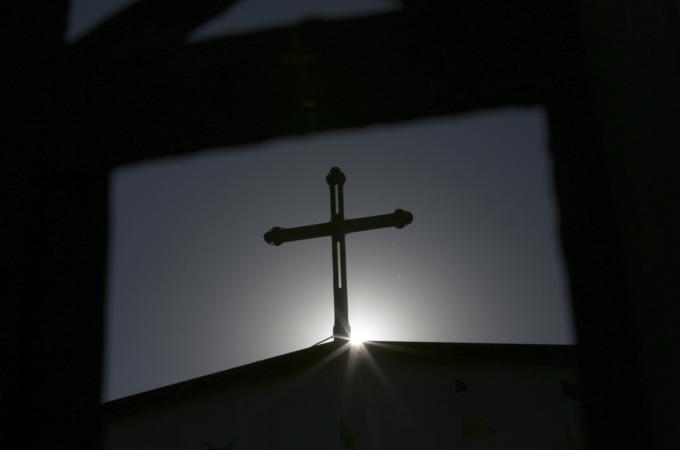China and Rome
Not long after coming to power in 1933, the German government headed by Adolf Hitler sought a formal agreement with the Holy See -- a concordat setting terms of the Church-state relationship. No sooner was the concordat in place, however, than the Nazis began violating it, prompting dozens of formal protests by from the Vatican.
By 1937, things had reached the point that Pope Pius XI felt moved to denounce Nazism in an encyclical, "Mit Brennender" (With Burning Concern), drafted by a German cardinal and Vatican Secretary of State Cardinal Eugenio Pacelli, the future Pius XII. Historian Michael Burleigh calls the document an "immensely astute critique of everything that Nazism stood for," including its anti-Semitism and neo-paganism.
Is history now repeating itself on the other side of the globe? Since terms of the "Provisional Agreement on the Appointment of Bishops" reached in September 2018 between the Holy See and the Chinese government haven't been made public -- a disturbing circumstance in its own right -- it is impossible to say flatly that Rome got a bad deal. But, certainly, the results so far have been highly disadvantageous to a large number of Chinese Catholics.
The agreement provides for bishops to be nominated by the government and confirmed by the pope. It expires in September but can be continued if both sides agree.
The Catholic Church is of course hardly the only one with problems in China. Muslims, Tibetan Buddhists, Falun Gong, and other Christians are all under extreme pressure from the government of President Xi Jinping. As it has done for two decades, the State Department recently listed China as a "country of particular concern" in its annual Report on International Religious Freedom.
Among Catholics, particular targets of the crackdown on religion are those 10 to 12 million faithful who have continued to worship in the so-called "underground" Church rather than the government-controlled official Catholic Church. Under terms of the Beijing-Rome accord, the Vatican apparently accepts the official body and encourages the underground Church's absorption into it.
It may be that the Vatican is betting its agreement with the no-nonsense men in Beijing will pay off in the long run by guaranteeing the Church a secure place in China in happier times to come. If so, who now can say with certainty the Vatican won't win its bet?
But the fundamental working principle of the Chinese communist government can be summed up in one word: control. And the present situation of the Chinese Church is such that neither Rome nor Catholics elsewhere should view it with anything but deep concern.
Chris Patten, the respected former British diplomat who was the last British governor of Hong Kong before it reverted to China, said in an interview earlier this year that the Vatican "got it badly wrong about China" in its agreement with the Xi Jinping regime. Patten said he agreed with those in the Vatican who want to "do what they can to make it easier for Catholics and other Christians to worship in China." But he added: "This was an extraordinary time to be doing this with an administration in China which has gone back on human rights."
A fact sheet on China posted by the U.S. bishops' conference says in part that "underground churches are closed, and their priests detained, crosses destroyed, bibles confiscated, and children under 18 forbidden from attending Mass and receiving religious instruction. Surveillance cameras and pictures of President XI are mounted in many churches."
That sounds uncomfortably like Germany in 1937.
- Russell Shaw is the author of more than twenty books. He is a consultor of the Pontifical Council for Social Communications and served as communications director for the U.S. Bishops.



















